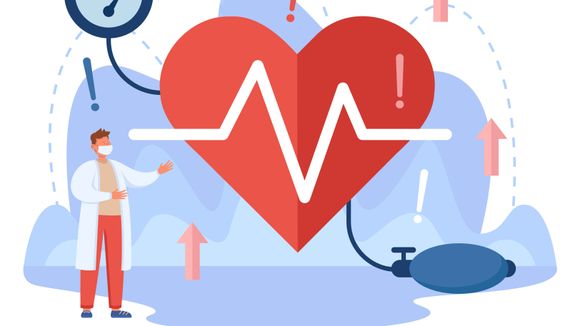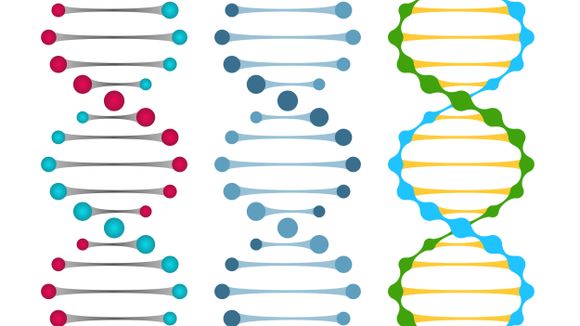What is Nicotinamide Riboside
Nicotinamide riboside is often referred to as NR for short and is a precursor to NAD+, meaning it is the raw material from which your body produces NAD+ through a series of chemical transformations. Not much was known about what exactly NR does in the body until 2004, when scientists discovered that not only was NR a precursor to NAD+ production in the body, but was thought to be more effective than other NAD+ precursors. [ref. 1]
As the authors of the study "Nicotinamide Riboside—The Current State of Research and Therapeutic Uses" point out, "nicotinamide riboside has become one of the most studied precursors of nicotinamide adenine dinucleotide (NAD+) due to its numerous potential health benefits mediated through increased NAD+ content in the body. NAD+ is a major coenzyme that plays an important role in various metabolic pathways and increasing its total content has been confirmed as a valuable treatment strategy for a wide variety of conditions."
There is plenty of evidence on the health benefits of nicotine riboside, including animal and human studies. They demonstrate its benefits for treatment and therapy in cardiovascular, neurodegenerative and metabolic disorders.
In terms of nature, nicotinamide riboside is an alternative form of vitamin B3, also called niacin. Like other forms of vitamin B3, nicotinamide riboside is converted by the body into nicotinamide adenine dinucleotide (NAD+), as has already become clear. NAD+ acts as a fuel for many key biological processes, including:
- Converting food into energy
- Repair of damaged DNA
- Strengthening the protective systems of cells
- Setting the internal clock or circadian rhythm of the body
Low levels of NAD+ have been linked to health problems such as aging and chronic diseases, such as diabetes, heart disease, Alzheimer's disease, and vision loss. One way to increase these levels naturally is by providing nicotinamide riboside.
Beneficial effects of Nicotinamide Riboside
Various studies on nicotinamide riboside and NAD+ have been done on animals, but there have also been studies conducted with the participation of humans. They highlight the following potential benefits of nicotinamide riboside:
Easily converted to NAD+
NAD+ levels do not remain constant, but decline with age. Low levels of NAD+ are associated with various diseases such as the above. One way to increase NAD+ levels is to consume NAD+ precursors — the building blocks of NAD+ — such as nicotinamide riboside.
Animal studies have shown that nicotinamide riboside increases NAD+ levels in the blood by up to 2.7-fold. What's more, it's easier to use by your body than other NAD+ precursors. [ref. 2]
Activates enzymes that can promote healthy aging
Once nicotinamide riboside helps increase NAD+ levels in the body, the latter activates certain enzymes that can promote healthy aging.
One group of enzymes is sirtuin, which improves life expectancy and overall health of animals and humans. Studies have shown that sirtwins can repair damaged DNA, increase resistance to stress, reduce inflammation, and offer other benefits that promote healthy aging. Sirtuins are also responsible for the life-prolonging benefits of calorie restriction. [ref. 3]

Nicotinamide Riboside May Help Protect Brain Cells
Nicotinamide adenine dinucleotide (NAD+) plays a key role in supporting brain cells and their normal aging. In brain cells, NAD+ helps control the production of PGC-1-alpha, a protein that helps protect cells against oxidative stress and impaired mitochondrial function.
Researchers believe that both oxidative stress and impaired mitochondrial function are associated with brain disorders typical of old age, such as Alzheimer's and Parkinson's disease.
In mice with Alzheimer's disease, nicotinamide riboside increased brain NAD+ levels and PGC-1-alpha production by up to 70% and 50%, respectively. By the end of the study, the mice performed significantly better in tasks based on cognitive function. In in vitro studies, nicotinamide riboside increased NAD+ levels and significantly improved mitochondrial function in stem cells taken from a patient with Parkinson's disease. 4
Nicotinamide riboside with potential anti-inflammatory action
Five clinical trials looked at oral nicotinamide riboside supplementation that measured inflammation. There is considerable heterogeneity in the estimated endpoints of inflammation. The dose of NR and the duration of treatment ranged from 1–2 g/day and 5-6-weeks, respectively. Participants varied in age (18–78 years) and health status. Of 3 studies evaluating circulating inflammatory markers, two examined IL-6 (interleukin 6) and reported significant reductions in its levels with nicotinamide riboside, while the effects on MCP-1 and TNF-α were unclear. 5
Preliminary evidence suggests that nicotinamide riboside may improve some inflammatory markers, with the potential for stronger effects among populations with compromised inflammation status, such as the elderly or sick people. A thorough study is needed to clarify which inflammatory markers are influenced by nicotinamide riboside and to what extent.
Nicotinamide riboside may have a cardioprotective effect
The leading cause of death in the world is heart disease, and aging is a leading risk factor for it. Aging causes our blood vessels to become stiffer and less flexible. This causes our blood pressure to rise and forces the heart to work harder to pump blood throughout the body. Over time, high blood pressure increases the risk of heart disease.
In a human study, nicotinamide riboside administration reduced aortic stiffness and blood pressure in middle-aged and elderly people. 6
Another study in humans showed that nicotinamide riboside reduced systolic blood pressure and aortic stiffness and increased NAD+-related metabolites, including adenosine and adenosine triphosphate. 7

Intake Guidelines - Food Sources of Nicotinamide Riboside
There are foods that are known to naturally provide nicotinamide riboside and increase NAD+ levels in the body. These include:
- Whole grains: rich in vitamin B3;
- Milk: Cow's milk is an excellent source of nicotinamide riboside;
- Fish: Sardines, salmon and tuna are rich sources of NAD+;
- Yeast: Nicotinamide riboside is contained in yeast;
- Green vegetables: Peas and asparagus are two of the best green vegetables for our body, which increase NAD+ levels;
- Mushroom. Mushrooms also increase NAD+ levels.

Side effects of nicotinamide riboside supplements
Nicotinamide riboside is safe to take in the form of a dietary supplement in certain amounts. In human studies, taking 1000-2000 mg. per day does not lead to harmful effects. No serious adverse effects have been reported in human studies, although most of the studies were short in duration and with a small number of participants. However, larger-scale human studies are needed to clarify this information.
To date, a small number of mild to moderate side effects have been reported when taking nicotinamide riboside supplements, including nausea, fatigue, headache, diarrhea, stomach upset, and indigestion.






